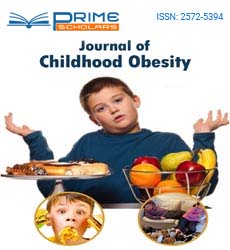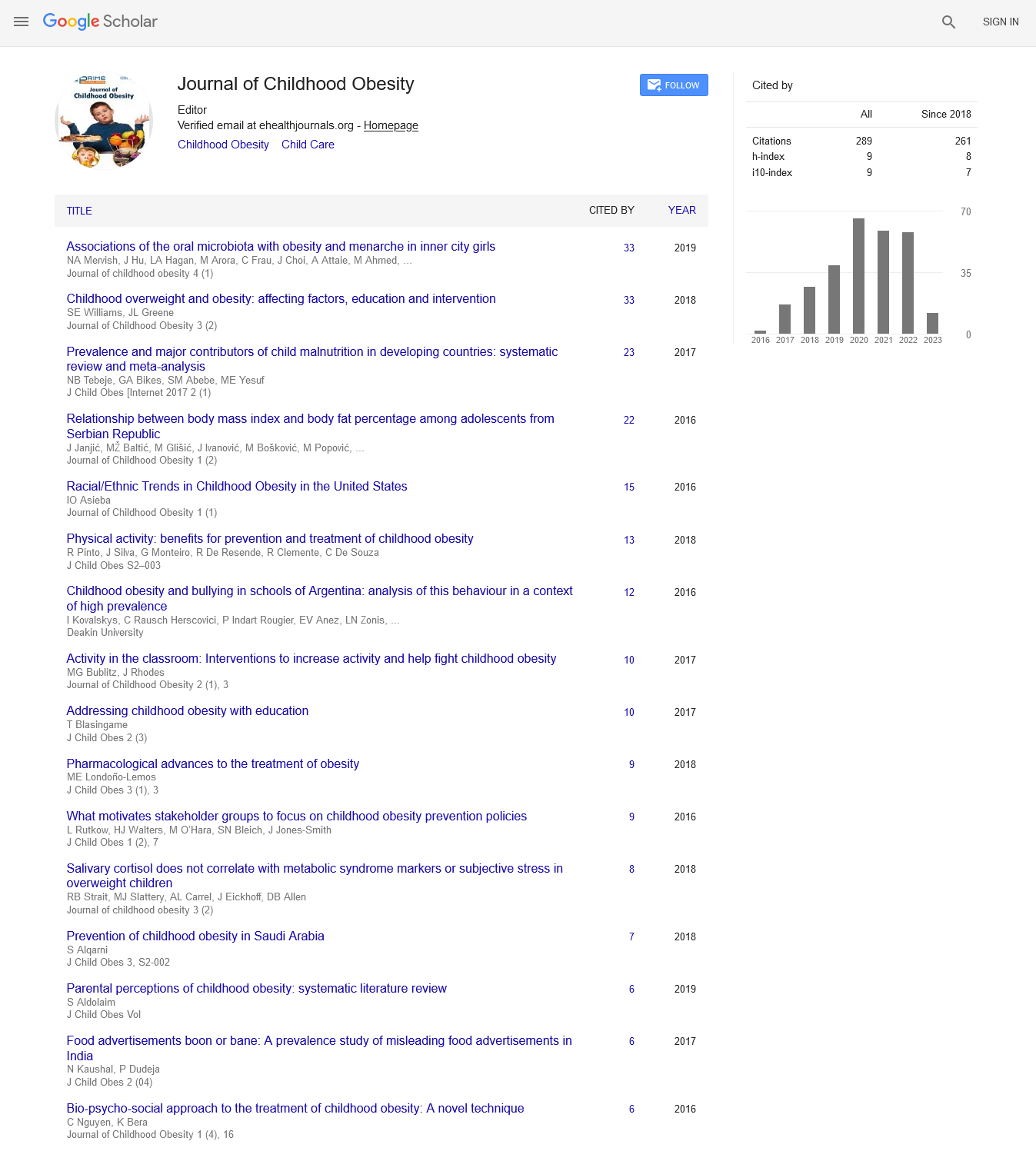Opinion - (2023) Volume 8, Issue 6
Unveiling the Weighty Concern Understanding Obesity in Born Infants
Rebecca Jason*
Department of Health Sciences, James Madison University, United States of America
*Correspondence:
Rebecca Jason,
Department of Health Sciences, James Madison University,
United States of America,
Email:
Received: 29-Nov-2023, Manuscript No. ipjco-24-18887;
Editor assigned: 01-Dec-2023, Pre QC No. ipjco-24-18887 (PQ);
Reviewed: 15-Dec-2023, QC No. ipjco-24-18887;
Revised: 20-Dec-2023, Manuscript No. ipjco-24-18887 (R);
Published:
27-Dec-2023, DOI: 10.21767/2572-5394-23.8.55
Introduction
While obesity is commonly associated with adults and children,
it may come as a surprise that it can also affect infants. Obesity
in newborns and young infants is a complex and emerging
health issue that demands attention. In this article, we will
delve into the factors contributing to obesity in born infants, its
implications, and the importance of early intervention. Obesity
in born infants can be attributed to a variety of factors, both
genetic and environmental. One significant factor is maternal
obesity during pregnancy. Infants born to mothers with obesity
may be exposed to an obesogenic environment in utero, which
can impact their metabolic programming and predispose
them to obesity later in life. Breastfeeding practices also play a
crucial role. Breastfeeding is associated with numerous health
benefits, including a lower risk of obesity.
Description
Infants who are exclusively breastfed for the recommended
duration are less likely to develop obesity. On the other hand,
the introduction of solid foods too early or the reliance on
high-calorie formula may contribute to excessive weight gain
in infants. Environmental factors, such as the family’s socioeconomic
status, access to healthy food options, and the overall
lifestyle of the household, can also influence an infant’s weight.
Limited access to nutritious food and a lack of opportunities for
physical activity can contribute to the development of obesity
in born infants. Obesity in infants poses immediate health
risks and can set the stage for long-term consequences. Rapid
weight gain during infancy has been linked to an increased risk
of childhood obesity, cardiovascular diseases, and metabolic
disorders. Infants with excess weight may experience
difficulties in mobility, delayed motor development, and an
increased likelihood of respiratory issues. Furthermore, obesity
in born infants can affect their cognitive and psychological
development. Studies have suggested a potential link between
early-life obesity and cognitive impairments, emphasizing the
need for a holistic approach to infant health that considers both
physical and mental well-being. Preventing and addressing
obesity in born infants requires a comprehensive approach
involving parents, healthcare professionals, and communities.
Prenatal care is a critical starting point, with healthcare
providers offering guidance on maintaining a healthy lifestyle
during pregnancy. Encouraging proper nutrition, regular
exercise, and weight management during pregnancy can
positively influence an infant’s health outcomes. Promoting
breastfeeding is another key strategy for preventing obesity in
born infants. Healthcare providers should educate mothers on
the benefits of breastfeeding and provide support to overcome
potential challenges. Additionally, promoting awareness
about appropriate feeding practices, including the timing
of introducing solid foods, can contribute to healthy infant
development.
Conclusion
Community-level interventions are vital to addressing
environmental factors that contribute to infant obesity.
Initiatives that focus on improving access to affordable,
nutritious foods, creating safe spaces for physical activity, and
providing education on healthy parenting practices can make
a significant impact. Obesity in born infants is a multifaceted
issue that requires a collaborative effort to address effectively.
By understanding the factors contributing to early-life obesity,
promoting healthy prenatal care, encouraging breastfeeding,
and implementing community-based interventions, we can
strive to create an environment that supports the optimal
growth and development of infants. Early intervention is
crucial in breaking the cycle of obesity and ensuring a healthier
future for the youngest members of our society. It is a collective
responsibility to prioritize the well-being of infants and set the
stage for a lifetime of health and vitality.
Citation: Jason R (2023) Unveiling the Weighty Concern Understanding Obesity in Born Infants. J Child Obesity. 8:55.
Copyright: © 2023 Jason R. This is an open-access article distributed under the terms of the Creative Commons Attribution License, which permits unrestricted use, distribution, and reproduction in any medium, provided the original author and source are credited.

